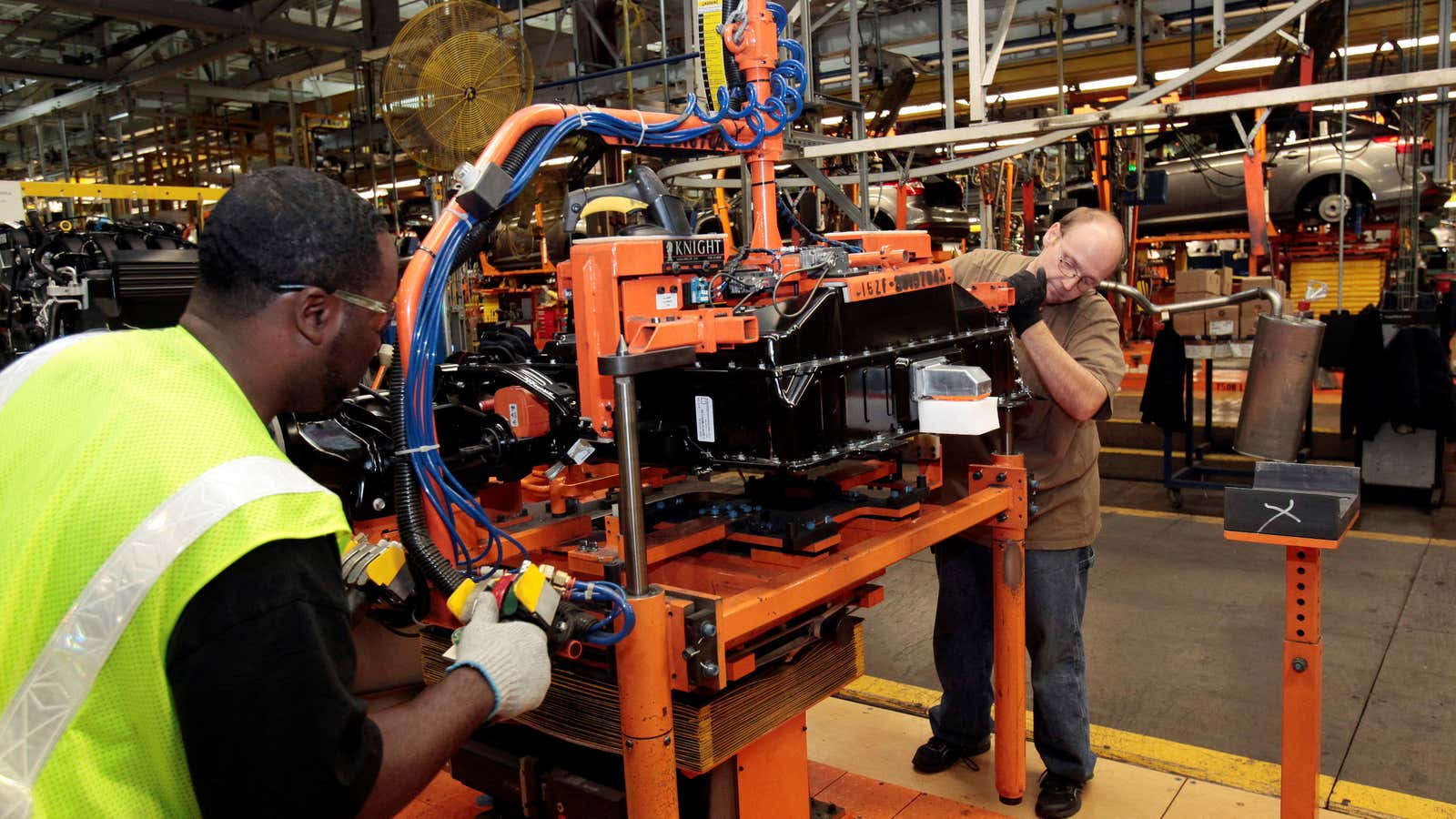The US Congress passed the biggest climate bill in the country’s history on Friday, clearing the way for a clean tech boom that is expected to create millions of jobs, save consumers money on energy bills, and deeply slash greenhouse gas emissions. Through $370 billion in tax rebates, grants, and loans, the Inflation Reduction Act, which is now headed to president Joe Biden’s desk, is poised to break the logjam that has left US climate tech companies struggling to compete on the global stage.
Climate tech in the US—companies that deal in renewable energy, electric vehicles, and the like—has long faced two major challenges. One is scaling: There’s plenty of cash from universities, the government, and Wall Street to support research and innovation, but much less for facilities to build clean tech at scale. So intellectual property conceived in the US at taxpayer expense often winds up exported to manufacturers in China and elsewhere. The second is unpredictable tax policy: Subsidies for renewables have traditionally needed reapproval from Congress every few years, leaving executives biting their nails and struggling to secure affordable, reliable private financing.
The IRA legislation—coming on top of climate provisions in a new microchip bill Biden signed on Aug. 10 and the $1 trillion infrastructure package from November—remedies both concerns. The bills “rewire the economy in all sorts of ways that will enable US clean tech to finally compete with—and beat—China,” said Josh Freed, senior vice president for climate and energy at the think tank Third Way.
Tax incentives will let climate startups access a vast pool of private financing
Tax incentives are now bigger and cover more subsectors; they’re designed to beef up domestic manufacturing, and they will be locked in for a decade. Climate tech companies are chomping at the bit to leverage that certitude in order to tap a vast pool of private tax equity financing, said Danny Kennedy, CEO of New Energy Nexus, a network of climate startup incubators. Even before the bill, tax equity financing for renewables in the US was projected to reach $20 billion in 2022 and will now likely go much higher in coming years. The bill also gives established corporations more of a reason to acquire promising startups, at higher prices.
That money will come at a pivotal moment, when many of the startups that received some of the $220 billion in private capital invested in climate tech globally since 2013 are now ready to scale up.
It’s not just the money, Kennedy said: Every job that gets created through the bill strengthens the political consensus on climate and lowers the cost of doing business, which leads to more jobs, etc. It’s a self-perpetuating cycle that’s greater than the sum of its parts.
Bumps in the road ahead for climate tech
Climate tech won’t be entirely on autopilot going forward. Rising geopolitical tensions with China are complicating cooperation on international climate policy and threaten to snarl supply chains for key materials. Local and federal bureaucracy to approve permits for new infrastructure remains tedious. It will take time to hire and train workers, and develop new local supply chains, since many of the new tax credits require US-based sourcing and operations. And a generation of climate tech nerds will need to get a crash course from their tax lawyers on the new financial resources available to them.
For some startups, the bill isn’t a cure-all. Mukesh Chatter is CEO of the battery startup Alsym, whose technology doesn’t require lithium or cobalt, minerals that are typically sourced from China or the Democratic Republic of the Congo. Alsym should be exactly the type of company the bill aims to support: Important, cutting-edge tech disentangled from politically toxic overseas supply chains. But building a big battery factory isn’t cheap, and Chatter said that although his batteries will be ready to manufacture at scale by 2025, the money in the bill isn’t enough to avoid needing to produce them overseas.
But at the least, for many climate companies Biden has succeeded in lifting the psychic burden of constant policy anxiety that has weighed them down for a decade.
“Candidly, I just want to stop thinking about this,” said Dan Patry, policy innovation manager at the energy storage company Fluence. “I’m really excited to get across the finish line and actually do the work.”
